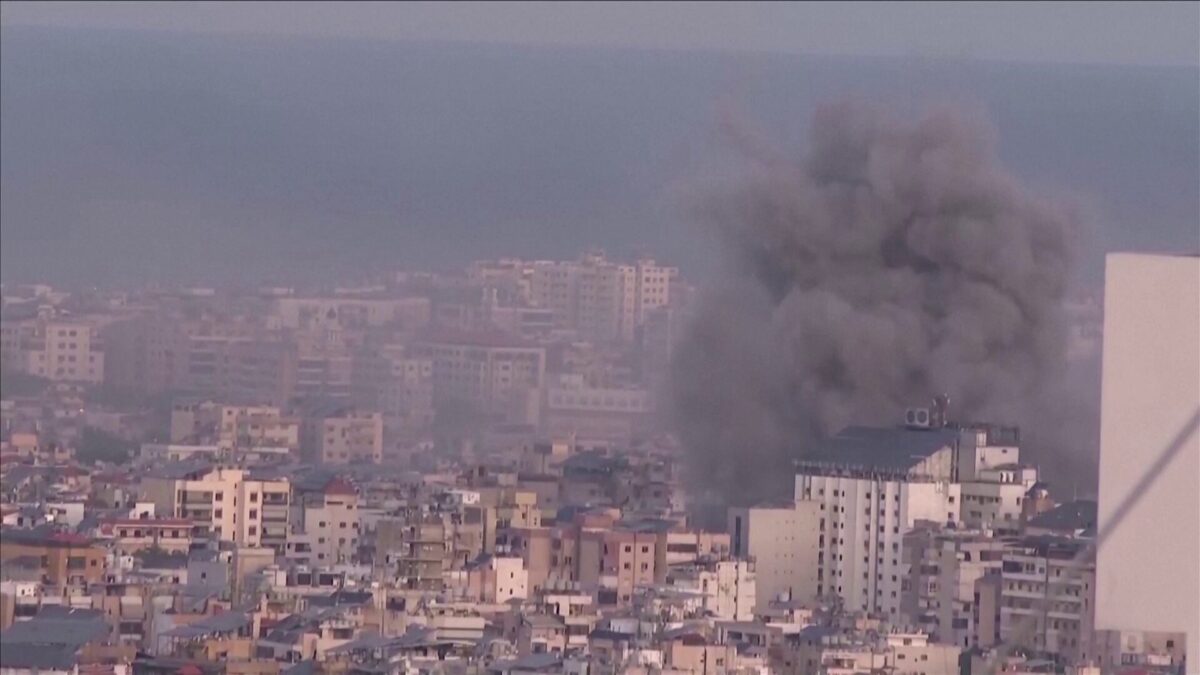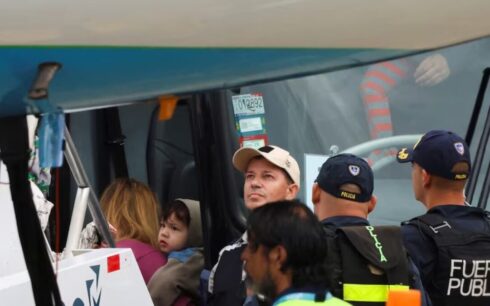JERUSALEM — Israel launched airstrikes on Hezbollah arms facilities in southern Beirut on Saturday, following a barrage of rockets fired from Lebanon into northern Israel. The Israeli military said the strikes targeted weapons storage sites and a Hezbollah intelligence command center in the suburbs of Beirut, marking a significant escalation in the region.
The attacks came after Hezbollah fired rockets into Israel and launched a drone toward Prime Minister Benjamin Netanyahu’s vacation home. Although Netanyahu was not present at the time, he condemned the action as an assassination attempt, calling it a “grave mistake” by Hezbollah, which he referred to as “Iran’s proxy.”
“These actions will not go unanswered,” Netanyahu said, signaling that Israel is prepared to retaliate further, particularly in light of an Iranian missile attack earlier this month.
In Gaza, where Israeli forces have been engaged in a prolonged conflict with Hamas, airstrikes continued, with Palestinian officials reporting more than 100 deaths on Saturday alone. The strikes have focused on key Hamas strongholds, and Israeli forces have encircled three hospitals in the coastal enclave, intensifying the siege. Tensions remain high following the death of Hamas leader Yahya Sinwar earlier in the week, which both sides hoped might lead to a cease-fire, but renewed fighting has dashed those hopes.
Israel also dropped leaflets over southern Gaza, featuring a picture of Sinwar and the message: “Hamas will no longer rule Gaza,” underscoring its intent to dislodge the militant group.
Later on Saturday, Israeli airstrikes on a building in the northern Gaza town of Beit Lahiya reportedly killed at least 73 people, with dozens more injured, according to medics and Hamas media. The Israeli military is reviewing the reports, saying initial assessments suggest the casualty figures may have been exaggerated.
Meanwhile, in Beirut, thick smoke could be seen rising from multiple locations in the southern suburbs following the Israeli airstrikes. The Israeli military issued evacuation orders for residents in several neighborhoods but carried out strikes in other areas as well. Tens of thousands of people have fled these suburbs, which have been under regular bombardment since Israel escalated its campaign against Hezbollah three weeks ago.
The conflict has also claimed the lives of several Hezbollah leaders, including Hassan Nasrallah, the group’s secretary-general, who was killed in an Israeli airstrike on September 27.
The ongoing violence has raised concerns in the international community. U.S. Defense Secretary Lloyd Austin called on Israel to consider scaling back its strikes in and around Beirut, citing the risk of further destabilizing the region as U.S. elections loom.
Despite international pressure, Israel appears determined to continue its military operations, aiming to weaken both Hamas and Hezbollah’s capabilities while safeguarding its borders from future threats.





